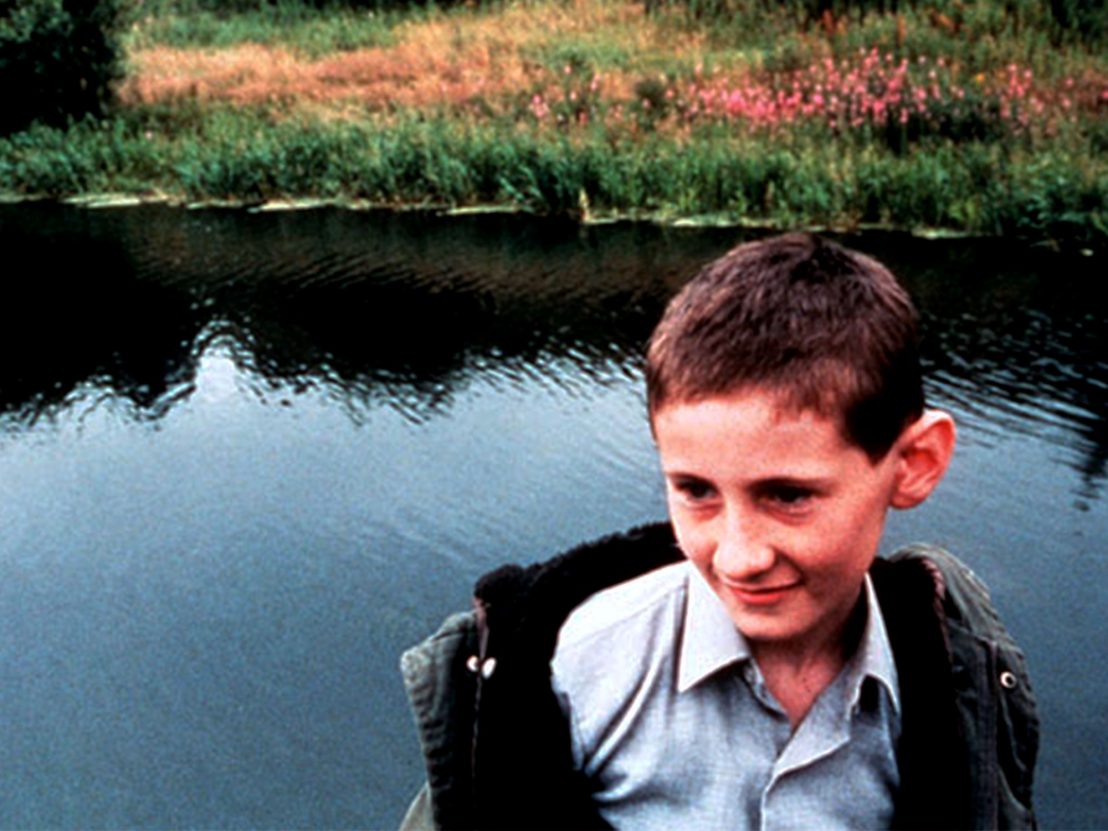
Trained as a photographer and cinematographer, Lynne Ramsay’s films all have embedded in them a determination to let the images do all the talking. There’s often an air of magical realism about her work, as strange images puncture sombre tales of people dealing with the aftermath of death, as Ramsay folds poetry and fantasy into even the most meagre of circumstances.
Despite the majority of her films being adapted from novels or short stories, the feelings of her characters are rarely conveyed through dialogue. Instead, the editing and the camerawork infer everything we need to know. To celebrate the release of her brilliant, brutal new film, You Were Never Really Here, we’ve put together a handy primer of Ramsay’s short and feature films.
Ramsay’s graduation film is a series of vignettes introduced with almost no context, focusing on the stories of children of different ages dealing with family, moments of violence or personal turmoil. It could be seen as a microcosm of Ramsay’s entire filmography, a film that mostly uses image to explore the far reaching consequences of different actions and what familial connection means in different social environments.
This stark follow-up captures a day in the life of a heroin addict recently released from prison. Opening on the droning noise of an unseen fly, it’s a film full of harsh noise; the protagonist is largely silent and there is no soundtrack. Cutting between the character’s past and present, Kill the Day shows us someone struggling to regain their agency following addiction. The final shot is particularly ominous, a sign that the road to recovery can feel like an eternity.
Gasman examines the emotional state of a young girl through circumstances that are never spoken or fully explained. We know only as much as she does – that there are two other children that are familiar with her dad. We are introduced to the characters through lingering close-ups, and the actions of these characters, letting us see how they act around each other before we even see one character’s face.
Ramsay’s first feature-length film follows a young Glaswegian boy named James after the death of his friend Ryan. With scarce dialogue and a subtle central performance, Ramsay lets the camera communicate James’ emotions. Images in Ratcatcher often feel disconnected and dreamlike; James’ guilt and grief forming an almost hallucinatory haze. That said, the film doesn’t wallow in misery, with small moments of hope manifesting in forms like a housing development, a friendship with a kindred spirit, even a rat tied to a balloon.
Set to a booming, mixtape-style soundtrack, Morvern Callar challenges us to sympathise with someone whose actions become murkier with each passing minute. Samantha Morton plays Morvern, who, following her boyfriend’s suicide, uses the funeral money to go clubbing in Ibiza. Ramsay does as little as possible to hold the viewer’s hand during this beguiling character study, ditching the novel’s first person narration and leaving us to decipher Morton’s performance. The result is a film that’s complex and mesmerising in equal measure.
Ramsay’s best-known work to date explores the complicated relationship between Eva (Tilda Swinton) and her psychopathic son Kevin (Ezra Miller). Throughout a dark connection between the two is established through shot matches of seemingly insignificant habits. It’s a disconcerting and disorientating experience, continually shifting between the past and the present, both linked by a visual motif of vivid red throughout the film, almost as if Kevin’s horrific act has reached back in time.
Ramsay returned to short filmmaking in 2012 with this enigmatic and experimental work. Shot in gorgeous monochrome by DoP Natasha Braier, Swimmer is filled with sound effects and dialogue that appear to be lifted from other sources. The clash between the sound and image creates an uncomfortable dissonance, a feeling which is only strengthened but the soundtrack boasting selections from Lord of the Flies and the Prometheus trailer. A testament to Ramsay’s desire to test the limits of cinema’s capacity for expression.
Published 10 Mar 2018

Joaquin Phoenix and director Lynne Ramsay combine forces to deliver a sensational cinematic sucker punch.

The You Were Never Really director talks framing violence and working with Joaquin Phoenix and Jonny Greenwood.

By Tom Williams
Lynne Ramsay’s masterful second feature from 2002 offers a visceral depiction of grief and longing.